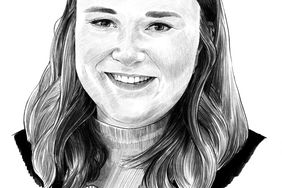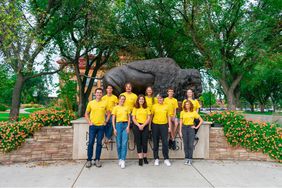
By Bonnie Johnson, AgCareers.com
You may see the light at the end of the tunnel — graduation and a paycheck are within sight. You’re hoping school is in your rearview mirror soon.
Then someone asks if you’re a lifelong learner, and that light fades and the tunnel seems to grow even lengthier!
Lifelong learning
“Hire for attitude, train for skills” is a popular mantra among recruiters.
Hard skills can get you an interview, but you need soft skills, or employability skills, to get the job. You also need soft skills to stay employed or run your own successful business or farming operation. Perseverance and a positive attitude go a long way!
AgCareers.com surveyed employers to assess the importance they place on certain skills and how these attributes impact the hiring decision. The results emphasize the importance employers place on soft skills in the hiring process. For both interns and new graduate hires, the top skills were teamwork, verbal communication, and decision-making/problem-solving. Meanwhile, hard skills, such as technical knowledge, were toward the bottom of the rankings.
Many employers look for soft skills in candidates, but will teach the technical, product, and company-specific skills after hiring. These skills will continue to evolve over time, thus enabling everyone to take a position as lifelong learners, whether working for others or leading the charge. Don’t look at it as a chore or task, but rather the opportunity to continue learning while earning. In fact, this continued learning is often considered a valuable nonwage compensation benefit for employees.
Employers not only want to hire the best candidates, but they also want to keep their top employees. As reported in the 2022-2023 AgCareers.com Agriculture & Food HR Review, a survey of U.S. employers, training and development is a top tactic used by employers to retain staff. Programs focus on helping employees grow in their skill level and boost their confidence and commitment to the employer. Development may include tuition reimbursement or tuition payment, paid training for certifications, special coursework, or classifications.
Where’s the money?
Money is important. In the 2022 Candidate and Employee Benefits Survey, participants said the salary/compensation package was the most important factor influencing their choice of an employer. Higher compensation was also the main contributing factor causing employees to leave their current job.
The good news is that agriculture and food organizations’ plans for salary increases are optimistic; there was a noticeable increase in the 2022-2023 HR review in employers saying all their staff would receive a salary increase. They also noted that a higher starting pay was one of the top ways they attract the best new talent to their organization.
Beyond using salary to hire, employers are doing their best to keep their high-caliber employees; employers noted that regular pay increases were the top talent retention strategy used.
:max_bytes(150000):strip_icc()/Screenshot2024-05-01at8.48.01PM-e3ab6ff791de4ff9ad3b2f0772a0f371.png)
Successful Farming
Beyond base salary
However, there is much to consider beyond the base salary. Total compensation is your base salary plus benefits, including short-and long-term incentives. Employees report that satisfaction with their benefits was necessary for their job satisfaction.
Evaluating what you’ll earn takes on many aspects besides base salary. Are you better off taking a higher salary that doesn’t include flexibility?
A lower salary that includes matching 401(k)? Self-employment where you pay your own insurance costs?
Base salary can also be deceptive if you neglect to consider location. Beyond the salary, cost of living is an enormous factor for everyone evaluating a first career or move.
The initial step is considering where you want to live, then the monthly income you’ll need to live comfortably in that location. Research the location to discover average rental or home prices, transportation, health care, taxes, and other expenses. After you have that base amount, you can truly evaluate a career opportunity. Simple cost-of-living index calculators online allow you to estimate how far your income will go in one location versus another.
The typical total compensation package might include these benefits beyond base salary:
- Insurance (health, dental, vision, life)
- 401(k)/retirement savings plan
- Employee stock options
- Bonus/incentive programs
- Vacation time
- Sick days
- Paid time off (PTO)
- Paid volunteer time
- Maternity/paternity leave policy
- Child care assistance
- Relocation expenses
- Cell phone provided/reimbursement
- Vehicle provided/reimbursement
- Internet reimbursement
- Wellness programs/incentives
- Company discounts on products/services
- Work-from-home options
- Flexible scheduling/work hours or days
- Tuition reimbursement
- Training/certification programs
- Professional development
Other benefits an employer may add to an offer include a work-from-home office set-up, pet insurance, or volunteer service hours.
Another important consideration for these benefits is if a probationary, or waiting, period applies until you’re eligible to receive them. Do you have to wait 90 days or six months until you’re eligible? Or do you receive benefits on day one?
:max_bytes(150000):strip_icc()/Screenshot2024-05-01at8.48.14PM-44185d6ed3714662a65d8770a0365516.png)
Successful Farming
For those just entering the workforce, the value of insurance and retirement plans is often difficult to appreciate. Besides the basics of an employer offering insurance or a 401(k) plan, knowing the specifics of those offerings makes a big difference in calculating your cost of living. What is your monthly insurance premium, or is it employer paid? Does the employer offer a retirement contribution or match? Details such as these take a benefit plan from the bare necessities to meeting and exceeding your needs.
You may also adjust your living cost estimates if the employer offers benefits you are already paying for, like your cell phone, fitness center membership, or car lease. Those simple benefits can add a few hundred dollars to your monthly income.
Beyond the salary, you need to maintain the standard of living you desire, evaluate career opportunities on what you can learn, grow in your career, develop professionally, and find your daily work fulfilling.
It’s time to start earning but keep learning. No matter what stage of your career, AgCareers.com connects you with thousands of job opportunities, career advice, and professional development. Find relevant job search and professional development advice in the AgCareers.com Online Career Success Library.
This article originally appeared in the SF: College Edition in Fall/Winter 2022.













